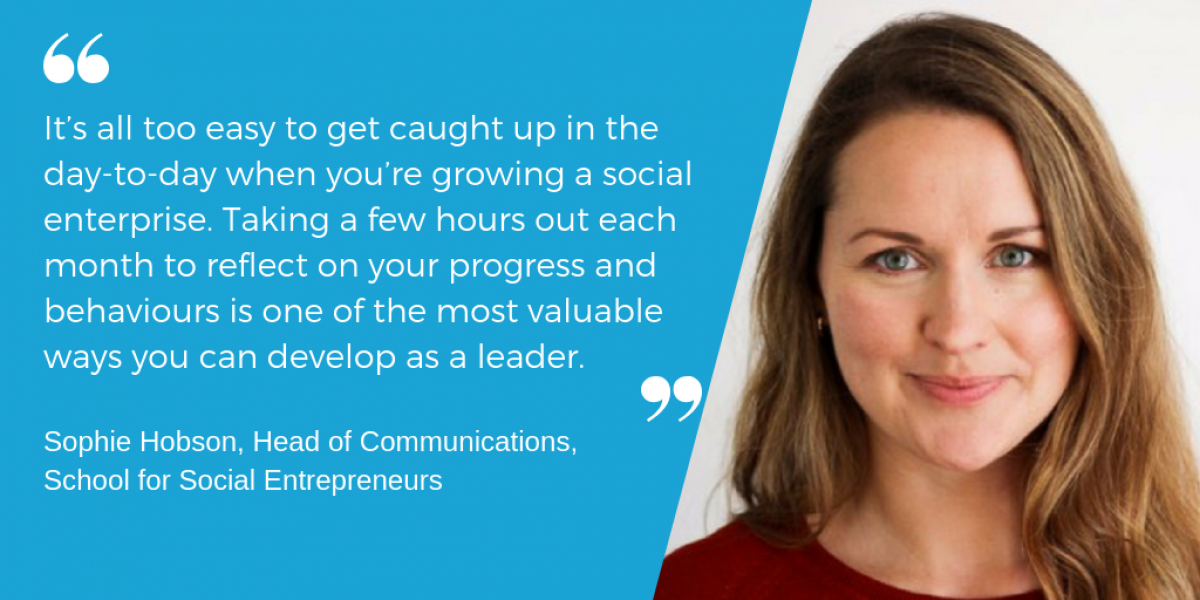Only one thing is certain when you’re a social entrepreneur: every month will be different from the last. You’re on a constant learning curve, whether your organisation is starting, scaling or shrinking. You feel like your to-do list is toppling over with tasks you’ve never had experience of tackling before. It can feel overwhelming. You need short-cuts to access the knowledge you need. Hopefully, the suggestions below will be a helpful starter for 10.

Find a mentor
Been dazzled at an event by a speaker? Recently read a column by an entrepreneur you admire? Brilliant. Why not ask that person if they can spare 20 minutes to answer your burning business challenge? That’s all it takes to kick off a mentoring relationship, and you’ll be surprised at how responsive entrepreneurs are to those at the start of the journey.
Or try a mentoring programme. Business In The Community’s ARC programme is designed for social entrepreneurs, and Expert Impact will facilitate a one-off session with a super-successful founder (disclaimer: I used to work there). The Fore connects charities and social enterprises with professionals for free advice. You could also try MentorsMe, though it isn’t specific to social entrepreneurs.
Training, short courses and learning programmes
In-person courses give you the opportunity to learn, obviously, but also to meet other social entrepreneurs facing similar challenges. If you’re not sure where to start, the Directory of Social Change and NCVO offer training specifically for social-sector leaders. There are lots of workshops listed on Eventbrite, and you can search by location. The School for Social Entrepreneurs, where I work, supports the learning of more than 1,000 social entrepreneurs and social-sector leaders every year through both long programmes and short courses.
Online learning
Prefer to learn in your own time, in your own space? Try online courses from the likes of Udemy, Future Learn, +Acumen, Coursera, EdX, iTunesU and Khan Academy.
Also check out Social Investment Unpicked, a free online interactive course for anyone who wants to deepen their understanding of social investment, (Our newest module, Legal Structures)
If you prefer to learn by reading, check out the resources aimed at social organisations on offer from Inspire2Enterprise, UnLtd, Social Enterprise UK, KnowHow NonProfit, Pioneers Post and us at SSE. There are endless websites supporting start-ups too. They’re not aimed specifically at social entrepreneurs, but there’s tons of inspiration and advice on websites like Startups.co.uk, SmallBusiness.co.uk and StartupDonut. The UK government’s website has straightforward guides too, like this one on how to set up a social enterprise.
Look inwards and take time out to reflect
It’s all too easy to get caught up in the day-to-day when you’re growing a social enterprise. Taking a few hours out each month to reflect on your progress and behaviours is one of the most valuable ways you can develop as a leader.
Find the questions that will keep you on track with your strategy and give you a check-in on your wellbeing. Are you on track with your vision? What is the most important next step, and what support do you need to achieve it? Why did you put off a certain task? What would improve your work-life balance? Here’s a useful article to help you self-reflect, and you’ll find plenty more online. Don’t put this off – book in a slot each month in your diary and do it!
Flex your network and learn from peers
Sometimes you need to find someone who’s just a half-step ahead, so they can share their experiences of the thing you’re tackling now. Search LinkedIn to dig out expertise among your professional network, and their contacts (then ask for introductions). Meetup.com and Eventbrite can help you find meet-ups for social entrepreneurs and start-ups in your area. And don’t forget Good Finance’s events listings!
Support organisations
Often social entrepreneurs apply to support organisations with funding in mind. And who can blame you! But support organisations for social entrepreneurs offer lots of learning opportunities, too. UnLtd offers grants primarily, but also runs learning programmes and mentoring schemes. Impact Hub runs a range of support programmes. If you’re under 30 years old, try the Prince’s Trust. Social Enterprise UK runs events and webinars for members, and it’s free to join if your turnover is under £100,000. Scotland-based social entrepreneurs can check out the Social Enterprise Academy. And of course SSE offers a wide range of support programmes in the UK, as well as India and Canada.
Sophie Hobson is head of communications at the School for Social Entrepreneurs. Follow her @sophiehobson and @SchSocEnt.
